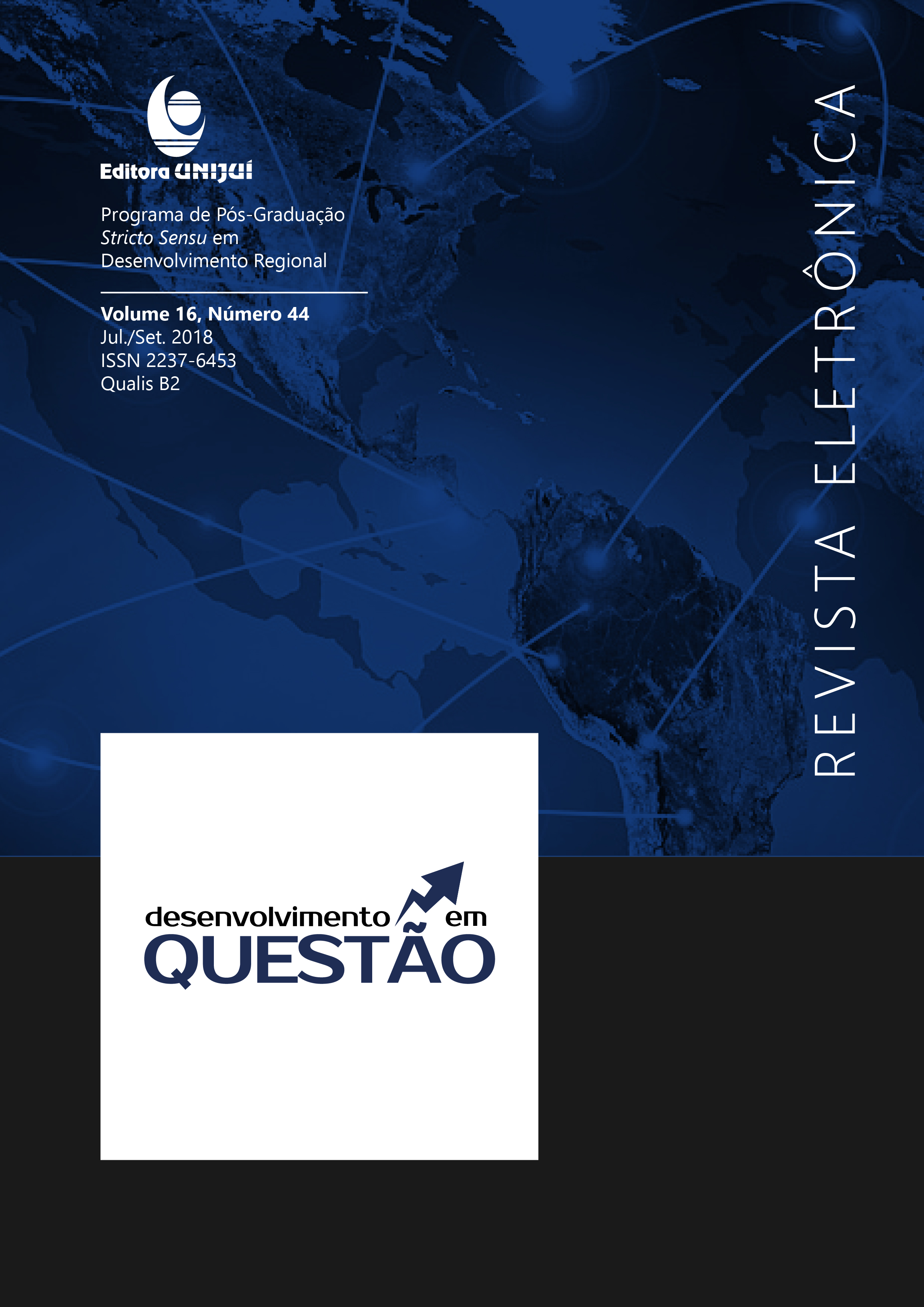Análise do Capital Social dos Agentes de um APL da Atividade Vinícola
DOI:
https://doi.org/10.21527/2237-6453.2018.44.508-537Keywords:
Arranjo Produtivo Local, Vitivinicultura, capital social, cooperaçãoAbstract
As discussões na literatura apontam para novas dinâmicas produtivas com a valorização da articulação dos agentes territoriais, como ocorre com os Arranjos Produtivos Locais (APLs).De forma geral, estes APLs são constituídos por um conjunto de agentes econômicos, sociais e políticos do território, os quais interagem em ações conjuntas que visam ganhos de competitividade, implicando na relação direta com o capital social.Neste sentido, o artigo buscou analisar elementos do capital social de um APL da área vinícola, incluindo as relações sociais e a interação dos seus agentes.Quanto à metodologia, a pesquisa utilizou o método de estudo de caso no APL de Vinhos de Altitude Catarinense, com a coleta de fontes primárias a partir de entrevistas com o conjunto de agentes deste arranjo produtivo.Os dados foram tabulados com métodos estatísticos e ARS, possibilitando uma abordagem quantiqualitativa.Como síntese dos principais resultados ressalta-se que este APL de vitivinicultura possui um bom nível de confiança, engajamento e comprometimento entre os agentes.Contudo, a rede possui uma baixa interação social, além de revelar um papel centralizador da governança local e de um pequeno grupo de agentes.O método ARS comprovou estes apontamentos, com a densidade e a reciprocidade ficando em torno de um terço das possibilidades para esta rede.
Downloads
Published
How to Cite
Issue
Section
License
By publishing in Revista Desenvolvimento em Questão, authors agree to the following terms:
All works are published under the Creative Commons Attribution 4.0 International License (CC BY 4.0), which allows:
Sharing — to copy and redistribute the material in any medium or format;
Adaptation — to remix, transform, and build upon the material for any purpose, even commercially.
These permissions are irrevocable, provided that the following terms are respected:
Attribution — authors must be properly credited, a link to the license must be provided, and any changes made must be indicated.
No additional restrictions — no legal or technological measures may be applied that legally restrict others from doing anything the license permits.
Notices:
The license does not apply to elements that are in the public domain or covered by legal exceptions.
The license does not grant all necessary rights for specific uses (e.g., image rights, privacy, or moral rights).
The journal is not responsible for the opinions expressed in the articles, which are the sole responsibility of the authors. The Editor, with the support of the Editorial Board, reserves the right to suggest or request modifications when necessary.
Only original scientific articles presenting research results of interest that have not been previously published or simultaneously submitted to another journal with the same purpose will be accepted.
Mentions of trademarks or specific products are intended solely for identification purposes and do not imply any promotional relationship by the authors or the journal.
License Agreement (for articles published from 2025 onward): Authors retain the copyright to their article and grant Revista Desenvolvimento em Questão the right of first publication.











